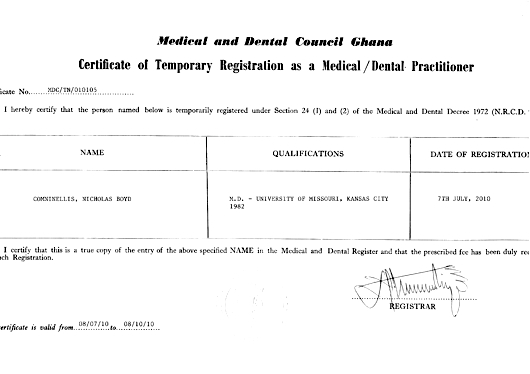 “In Haiti over eight days we saw 900 patients, treating infections and diarrhea. The people are desperately poor and were so very grateful for the medical care.“ This young physician spoke with enthusiasm. But then his voice turned somber, describing how the police arrived to investigate the credentials of their medical missions team.
“In Haiti over eight days we saw 900 patients, treating infections and diarrhea. The people are desperately poor and were so very grateful for the medical care.“ This young physician spoke with enthusiasm. But then his voice turned somber, describing how the police arrived to investigate the credentials of their medical missions team.
Practicing our healthcare professions in a foreign country without a license in THAT country is very likely to be illegal. Healthcare professionals must comply very carefully with licensure requirements of host nations, who rarely offer exemption simply because we may be providing free care or aid for the poor. Serving under the authority of a licensed national practitioner may be sufficient, but healthcare professionals must be diligent to verify this fact. Complying with national licensure requirements not only prevents legal complications, but is also a strong symbol of respect for the host nation and the ethical practice of healthcare professions.
How would you go about getting properly licenses in the nation where you volunteer? Begin by contacting your national partners in that nation. They are usually the ones with greatest interest in assisting you and with greatest insight into negotiating the requirements and procedures for proper licensure.
